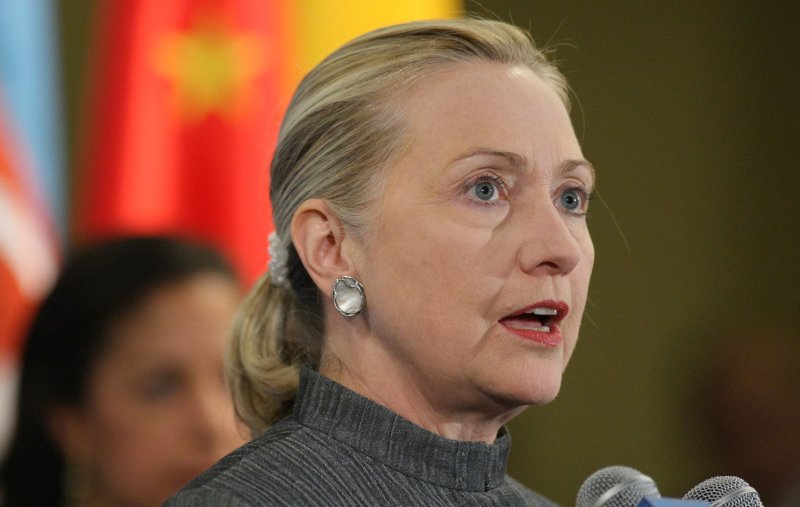1 of 3 | U.S. Secretary of State Hillary Clinton speaks to the media following the Security Council meeting held to discuss the Arab League's peace plan for Syria at the UN on January 31, 2012 in New York City. The proposed plan calls for the transfer of power from Syrian President Bashar al-Assad to his deputy and for free elections to be held. UPI/Monika Graff |
License Photo
WASHINGTON, Feb. 3 (UPI) -- A U.S. House leader said it was time to give up on pressuring Syria at the Security Council while a Washington analyst said it might be time for intervention.
Russian officials objected to draft language in a Moroccan resolution circulated at the U.N. Security Council because of calls for Syrian President Bashar Assad to step down. Moscow says it is worried sanctions would open the door to international military action like last year's operations in Libya.
The United Nations estimates at least 5,000 people have been killed in Syria since March and there are no signs of the bloodshed abating.
U.S. Rep. Ileana Ros-Lehtinen, R-Fla., chairwoman of the U.S. House Foreign Affairs Committee, said a weak Security Council resolution doesn't deserve Washington's support.
"If a U.N. Security Council resolution on Syria contains no sanctions, no restrictions on weapons transfers and no call for Assad to go but supports the failed Arab League observer mission, then the resolution won't be worth the paper it's printed on," she said in a statement.
Damascus maintains its dealing with an insurgency backed by foreign interventionists. Daniel Byman, director of research at The Brookings Institution's Saban Center for Middle East Policy, said a divided opposition and continued support for Assad's regime means Syria is likely on a fast track to civil war.
"The Syrian president has survived almost a year of demonstrations and growing violence, and if not pushed by outside actors he may yet cling to power," he writes. Intervention, he added, "must" be on the table.





